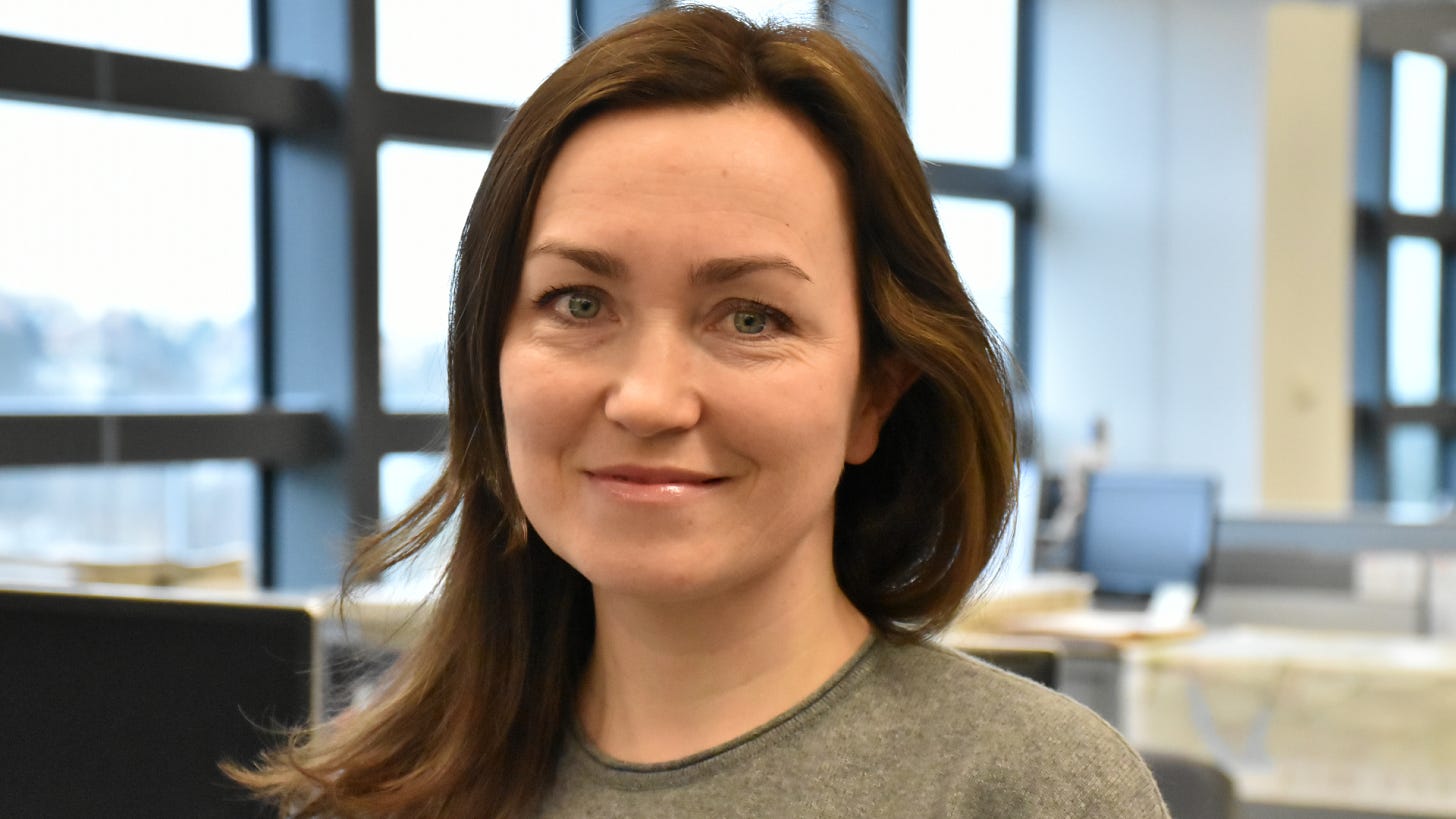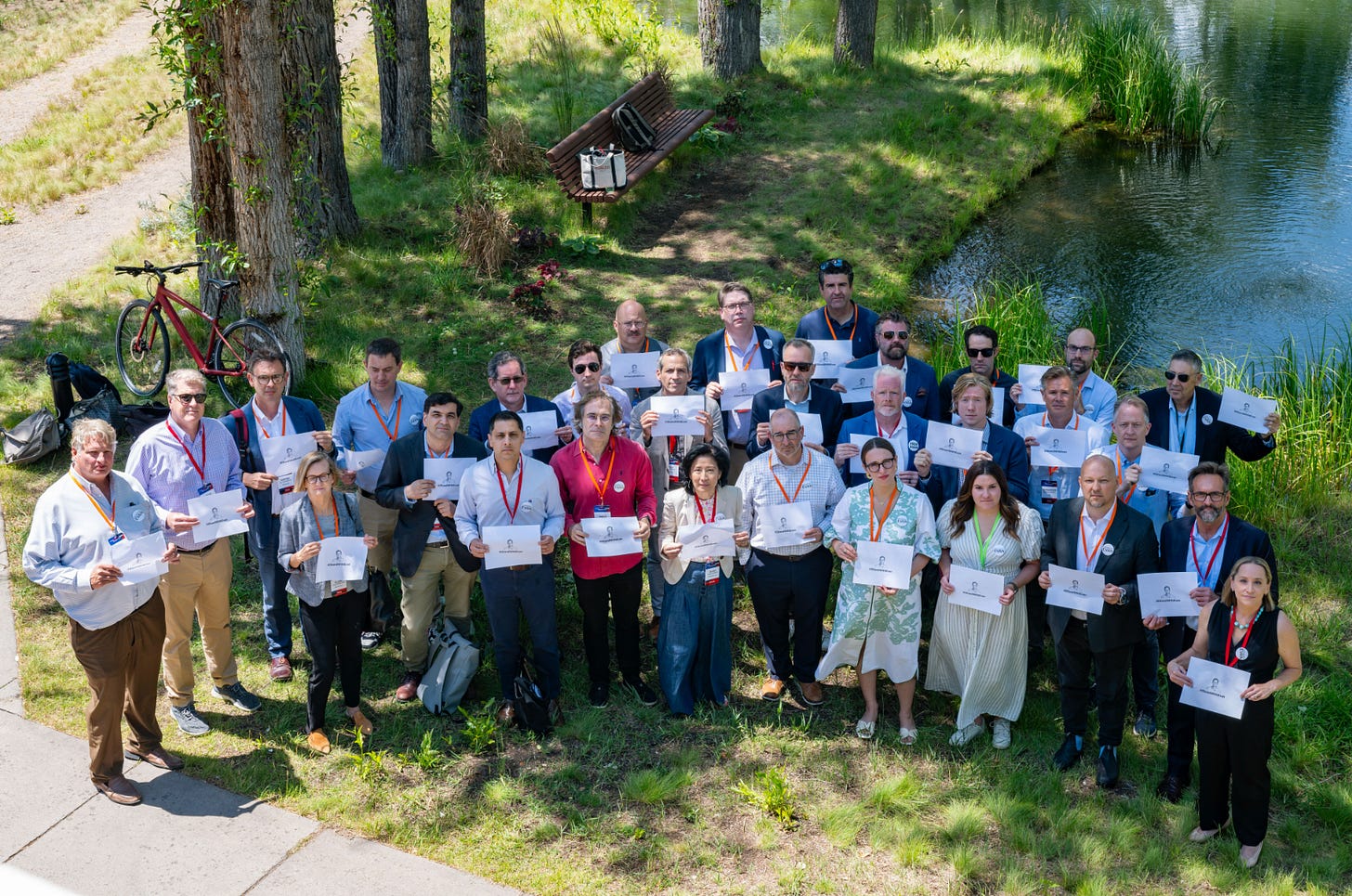Alsu Kurmasheva is an American Journalist Detained in Russia
Why has her case not received the attention as it deserves?
About an hour after I published today’s Global Dispatches episode about an American journalist detained in Russia, I saw this Associated Press report that Alsu Kurmasheva has been sentenced to six years in a Russian jail on the spurious charge of “spreading false information about the Russian military.”
If you’ve not listened to the episode yet, the story is this: Alsu Kurmasheva is a Russian-born naturalized American citizen who works for Radio Free Europe/Radio Liberty. She mostly covers cultural stories for the Tatar language service of RFE/RL. Last year, she traveled to Russia to visit her elderly mother. On her way home, she was detained at the airport and had her passport confiscated. She was later sent to prison, denied consular access, and held more or less incommunicado.
That was the sad state of play when I interviewed her husband Pavel Butorin, who is also a journalist for RFE/RL. As he explained to me last week, there is no transparency in the Russian court system, so he had at most a vague idea of the charges against her.
And now, out of nowhere, she’s been sentenced to over six years in prison. “This secret trial and conviction make a mockery of justice — the only just outcome is for Alsu to be immediately released from prison by her Russian captors. It’s beyond time for this American citizen, our dear colleague, to be reunited with her loving family,” says RFE/RL President & CEO Stephen Capus said in a statement released today.
The case of Alsu Kurmasheva is yet another example of the Russian government targeting an American journalist.
It bears resemblance to the case of Wall Street Journal reporter Evan Gershkovich, but distinct in two key ways. First, Evan Gershkovich’s case receives a lot of attention. And justifiably so. His continued detention in Russia is an affront to journalism and a violation of his human rights. At the Aspen Security Forum last week, his Wall Street Journal colleagues handed out “I Stand With Evan” pins that I and other journalists wore throughout the conference. At one point, we all gathered in solidarity for a solemn photo in which we held placards demanding his release.
Alsu’s case just has not (yet) received this kind of attention.
The second reason Alsu’s case differs from Evan’s is perhaps a consequence of the first: unlike Evan Gershkovich, the United States government does not (yet) consider Alsu Kurmasheva to be “wrongfully detained.” This designation is significant. In 2020, Congress passed the Robert Levinson Hostage Recovery and Hostage-Taking Accountability Act which empowered a special office in the White House devoted exclusively to securing the release of Americans held hostage by foreign governments. The thing is, before this White House office can take up a case the State Department must first determine that someone is indeed “wrongfully detained” under the criteria set forth in the law. Alsu’s case certainly fits all the criteria, but the State Department has not yet made this determination. Thus, her case has not been referred to the Special Envoy for Hostage Affairs Roger D. Carstens.
As it happens, Roger Carstens was at the Aspen Security Forum last week, for an on-stage interview with Courtney Kube, an excellent reporter from NBC News. Before the interview, I talked to to Courtney about Alsu’s case, and sent her a copy of my interview with Alsu’s husband. That lead to this exchange:
Edited for clarity
Courtney Kube: As I was getting to know Roger and I was preparing for this event, I didn't understand why the State Department takes certain cases and doesn't take others. There's upwards of 6,000 Americans detained or arrested overseas every year on average. Can you explain why you take certain cases and not others?
Roger D. Carstens: I can do that, but I would be remiss if I could jump back and parachute back into the Russia side. I'd like to thank everyone in the audience that's that's played a role. There's so many people, the Wall Street Journal team. There are a lot of journalists out there, a lot of NGOs…so for all those are working hard on Evan and Paul [Whelan] and all these other cases, thank you.
To answer your question on on why we take cases, there was a time from 2015 when my office was created, until about 2020 when we didn't really have much of a system. Eventually you'd come across a case where you knew that another country was using that person as a bargaining chip. And that was the no brainer. You would take that case. But we were very grateful in working with our allies and friends on Capitol Hill, Republicans, Democrats, Senate, House members, their teams, their staffs. We worked over some period to build out the Robert Levinson Act, which was passed in 2020 by the US Congress and passed into public law. And it gave us criteria with which to evaluate a case so that we could determine whether someone was wrongful or not. And in the 11 criteria that were given to us by the US Congress, it also stipulated that the Secretary of State has the discretionary authority to select the case as being wrongful.
So what we did did at that moment is we took a look at 1000s of cases around the world to see if what happened in the past would somehow elevate them to be wrongful or not by applying this criteria. And in the current day and age, if an American is arrested anywhere on Earth in any country, members of the US State Department take a look at the facts of the case. They apply, essentially, the criteria that was given to us by Congress through the Levinson Act to see if there are indicators of wrongfulness. And if they seem to feel that there are those indicators, they send that up to Washington, DC, and then it starts the internal process within the building.
Courtney Kube: So take the case of Alsu Kurmasheva. She's a journalist. She was living in Prague. She came to Russia, I believe, to visit her mother. She's been detained there for about a year now. I don't believe she's been charged that we know of. Why is she not one of your cases?
Roger D. Carstens: That's a fair question. My answer might be unsatisfying. I mean, we've been following that case since it since it happened. I've had a chance to talk to her husband, Pavel, and her kids too. And it's a case that the President United States has actually been has been made aware of. In fact, he called for Alsu’s release, and yet, within the parameters of how we go about deciding whether a case is wrongful or not, it's a deliberative process, and we just don't discuss the details.
I would say again, though, in general, if a case seems to be wrongful, it eventually comes up to the State Department and we take it through a more thorough process. And what I will share with you is there is no magic number. Like, if I suddenly got 10 cases tomorrow and then 30 cases three weeks from now, the Secretary of State would hire more people so we don't fear taking more cases. But we want to make sure that we apply the law that Congress gave us in a way that ensures the purity of the process.
This is obviously not a satisfying answer. But I would imagine that the sentencing of Alsu Kurmasheva on trumped-up charges would raise the possibility that her case will soon fall under the remit of the White House. Hopefully, that also raises the prospects that she will be reunited with her family — and that those of us who care deeply about journalists wrongfully detained in Russia will think of both Evan and Alsu.




